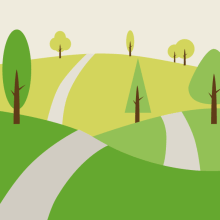Since April last year, we have been working with a collaborative of organisations supporting people in Scotland with epilepsy; Quarriers, Epilepsy Connections and Epilepsy Scotland. With 2023 just behind us, we’re reflecting on what we’ve learned through our work building a tool to inform and support commissioners about the need for social support for people with epilepsy.
Social support for people with epilepsy focuses on providing a person with resources and knowledge and developing skills and confidence to live well with epilepsy and self manage their condition. Social support is broad, encompassing everything from information and peer support; to group meetings and guidance from a support worker.
Crucially, social support and clinical support are separate but should complement each other, as part of a joined-up approach to supporting people to live well with this neurological condition.
We are launching the tool this year, and have heard from people across Scotland to create this resource.
We’ve spoken with commissioners, to understand what the challenges are for them when they are commissioning a new service; and what information they need to support their decision making. We’ve been invited to attend social support groups across Scotland, and have had the opportunity to meet and talk with people whose life is impacted by epilepsy. Practitioners have shared their professional perspectives on the difference that support can make to people’s lives, and why more social support is needed.
We’ve learned so much about epilepsy as a condition; and the ways it can impact on someone’s confidence; on their ability to socialise or participate in their community; and on their sense of self more widely.
However, we’ve also learned that social support can make a big difference to people’s lives. People that attended support groups told us that they’ve been able to share knowledge and understand the condition better through meeting others. They’ve had opportunities to socialise in a safe and understanding space, and meet people who share their experience. People have told us how groups have saved them from isolation, and how all of this has come together to have a positive impact on their wellbeing.
“It makes you feel more comfortable, you know people are similar to yourself, see what you’re facing.”
“When you come to [worker’s name] and this group, you get people saying ‘oh I’ve suffered that, and that and that and that’... we are all in the same boat, even taking the same medication, even getting the same side effects… things like that changes somebody's life”
Another thread that we have heard throughout, from people and practitioners, is that epilepsy still feels like a condition that is not well known, and even misunderstood. People across this project shared that awareness of epilepsy among the general public, and even among professionals in other areas of the social care and health sectors, is lacking. For example, people with epilepsy and practitioners have highlighted to us that seizures come in many forms; and don’t always look like the depictions that people might have seen on television. Some felt that epilepsy carries a stigma, and they were worried about how they would be perceived if they were to have a seizure in public.
“Well [the group] has helped my confidence, meeting other people with epilepsy… when I used to go out with my mum, or my cousins or that in the town, people would look at you like you’re on drugs”
And so, as we begin to plan launching the tool, we want to consider how this can support wider awareness of this neurological condition. Launching a successful tool will be a key part of generating awareness, and we are looking forward to bringing key stakeholders together to learn more about what they can do to support people with epilepsy in Scotland.
Until then, this is our reflection on what we’ve learned so far. You can learn more about epilepsy, and about the social support you can access from Quarriers, Epilepsy Scotland and Epilepsy Connections. If you want to be kept up to date with this project, and the toolkit launch, get in touch with hannah.martin@iriss.org.uk or louise.bowen@iriss.org.uk




